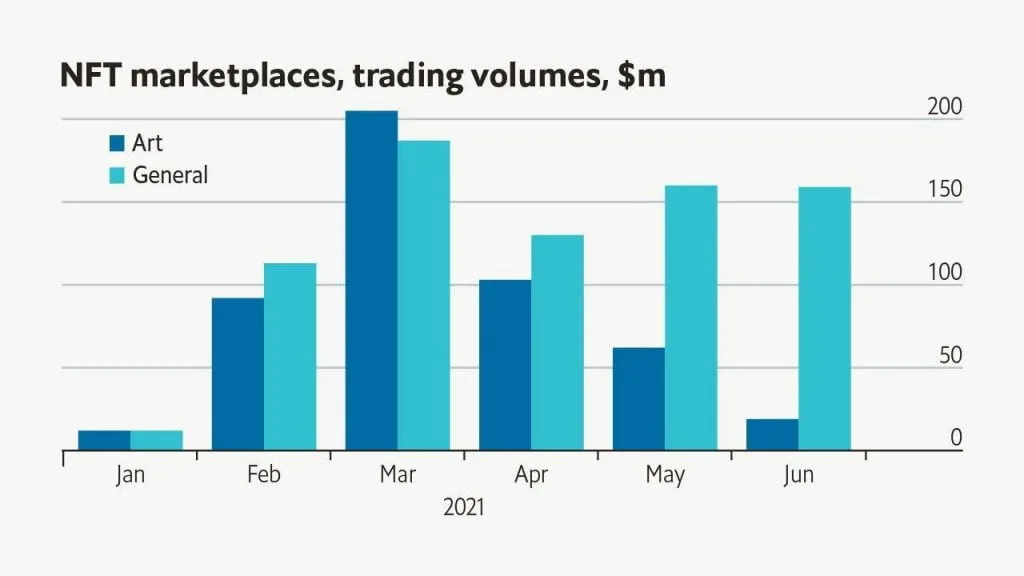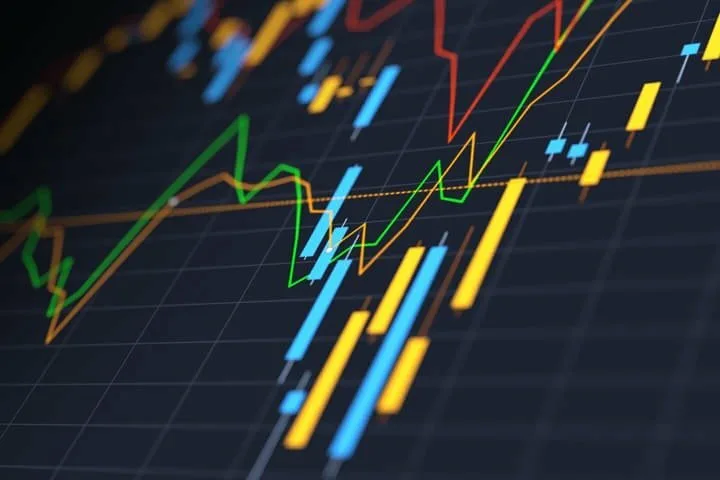The modernisation of the world and thriving tech patterns are a statement of what the future is likely to hold. With technical upheaval and well-curated methods in the tech line, a high level of growth is visible in all sectors.
The unique terms like Metaverse and NFTs are a modern trend that has shaken every sector within the global sphere.
It is estimated that the market for NFTs grew by 21350% last year. Owing to these upgraded tech applications and technologies the world is expecting better and quick robotic changes in all fields.
The arrival of AI, logistics, and non-fungible tokens has eased the scenario in so many ways. From managing a brand to exhibiting the best of a product, NFTs have significantly improved the global atmosphere.
Financial dealings based on NFTS have become a norm. To control the traffic surges on social websites AI-backed systems are playing an essential role.
The Concept
An NFT is a blockchain-based encrypted record of possession for an object that includes unique identifying codes and information. The token allows for the transfer and tracking of asset ownership among holders.
The Ethereum blockchain is now used by the majority of NFTs. Without the possibility of fraud or forgery, tokenized assets may be purchased, sold, and exchanged internationally. Identities, private property, and other information can be presented via NFTs.
Although NFTs may be used to invest in any asset, their current market is dominated by collectibles like digital art and sports cards. NFTs are often used to trade highlights from sports or other events.
As more individuals and organisations realise the many benefits of NFTs, their use will become much more widespread. It can, for example, eliminate middlemen in a transaction and make identity management easier.
It can also also bring buyers and sellers together to build new marketplaces that companies are wishing to have.

Application of NFTs in the Market
Usage in Smart Contracting
NFTS is very reliable when it comes to smart contract-making. Traditional assets, like certificates and degrees, may be tokenized using NFTs. This keeps the document safe on the blockchain while allowing outside institutions or companies to identify it.
Once an NFT for a diploma is established, it is unreachable by anybody other than the owner while simultaneously being transparently verifiable by other parties.
Trade and E-Commerce
Companies may use NFTs to create and administer smart contracts for freight and delivery services, as well as provide total transparency and traceability through crypto-tracking.
Improved Competence
NFTs efficiently turn a physical item into a digital one, removing the need for middlemen in transactions. Instead of working via an agent, artists may communicate directly with collectors.
Application of NFTs can also help businesses enhance their operations by allowing diverse stakeholders in a supply chain to verify a product’s provenance, manufacturing, and sale to confirm its authenticity.
Tax Payments
With more usage of NFTs, companies must address how tax and corporate finance apply to these assets. Administrations are still wrestling with this new kind of investment, and while purchasing and selling NFTs, investors must be aware of their local tax rules.
NFTs are categorized as capital assets in the United States unless the buyer is in the business of purchasing and retailing NFTs.
Although users and producers may not be taxed for developing an NFT, the sale may be subject to tax payment as part of regular income. Foresightedness regarding this now evolving tech is essential to take smooth steps and rule out user-friendly policies.
Brand Building
Consumers today place a high priority on whether brands reflect their beliefs. Companies may show their brand’s commitment to social concerns by donating NFT earnings to organisations.
Alternatively, entrepreneurs might ask artists to design tokens for their company and reward them with both publicity and cash from their work.
Future of NFTs
NFTs are a win scenario for both businesses and customers, allowing the latter to possess a digitized piece of a brand that isn’t one of its goods and resale at a profit if desired.
It is for sure that the environmental effect of NFTs is a major consideration, and marketers need to figure out how to find a balance between both the trend and its implications.
Given the high demand for tokens, new ecologically friendly methods of producing tokens are likely to emerge shortly. With increased concerns over environmental issues, anything eco-sustainable is likely to get fame.
Several top-notch tags like Burberry entered the Application of NFTs sector in the past year, producing a unique range of digital wearables for the Blankos Block Party game that earns rewards to the loyal gamers. Players may also use the game as a marketplace to gather, sell, and personalize their “blankos” as NFTs.
The notion of character customisation is built upon with in-game NFTs at this convergence of technology, fashion, and video games.
Players will not only have more influence over how their characters seem, but they will also have possession of in-game items that can be exchanged for profit on out-of-game NFT marketplaces.
This can also be due to the current proliferation of platforms and increased accessibility. OpenSea and Nifty Gateway are among the markets that are surfing this wave. Moreover, research shows that Nifty’s sales crossed $250 million in the previous year.
NFT production has increased, and it has also gotten more inventive. Digital cards, audio, virtual land, gaming characters, artwork, chosen moments, and anything else that can be made into a digital collectible may now be sold. The number of new marketplaces has also increased.
Rules and Regulations
This favours large corporations over small enterprises and customers. This monopoly is expected to be broken up by blockchain-based technologies, which aim to build a new decentralised trade platform. As a result, increased innovation and openness will be possible in the times to come.
The future of e-commerce is mostly decentralised, which means that NFTs will have a significant effect in the coming era. Companies like Amazon and AliExpress already dominate the retail business, and they are expanding into other industries as well.
In the e-commerce industry, they have a monopoly. NFTs have the potential to eliminate such marketing third parties. The operations are expected to become peer to peer, and customers will be able to trade directly with one another, returning power to them.
With the best research and development techniques, the sectors have benefited greatly from the NFT tech. Keeping in view the changes, there are high chances that all the companies will make use of online shopping bots with skilfulness in the application of NFTs while earning increased revenues than ever before.







